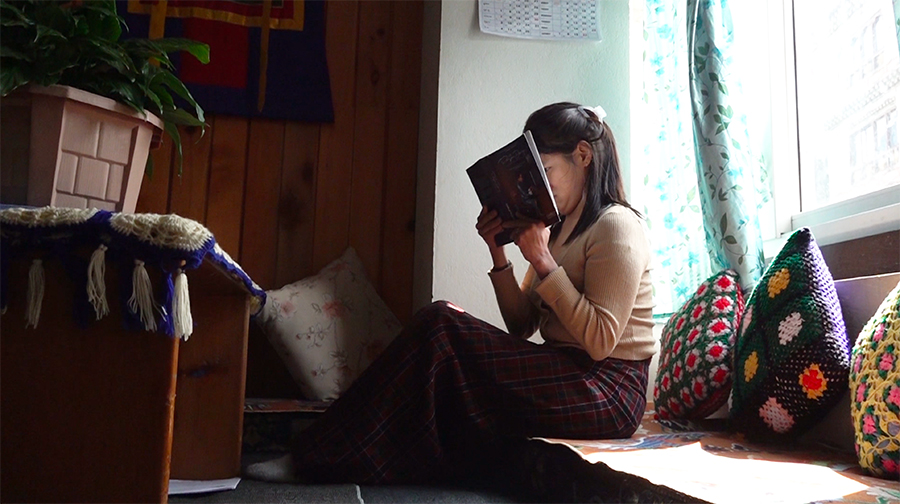 Bhutan still has a long road ahead in making workplaces truly inclusive for people with disabilities. This is according to the Industry Census Report 2024 released by the Ministry of Industry, Commerce, and Employment. The report states that a mere 0.7 per cent of offices and businesses in the country employ persons with disabilities. This alarmingly low figure reveals the systemic barriers that continue to hinder access to job opportunities, highlighting the pressing need for more inclusive employment practices.
Bhutan still has a long road ahead in making workplaces truly inclusive for people with disabilities. This is according to the Industry Census Report 2024 released by the Ministry of Industry, Commerce, and Employment. The report states that a mere 0.7 per cent of offices and businesses in the country employ persons with disabilities. This alarmingly low figure reveals the systemic barriers that continue to hinder access to job opportunities, highlighting the pressing need for more inclusive employment practices.
29 year-old Tandin Lham spends her days at home with her parents, caring for her sister’s baby and lending a hand with household chores.
Born with cerebral palsy, Tandin faces daily challenges, yet her spirit remains unshaken.
Despite her disability, staying at home is not something she wants to do forever.
She has a certificate in computer application, accounting and tally and even landed a job at Thimphu Techpark about five years ago. But she had to quit two years later due to health reasons. But since recovering from her illness, Tandin has been actively looking for a job.
“It is very difficult to get accepted by the agencies being a person with disability because they hardly accept that we can do the job unlike others.”
Tandin hopes to one day be financially independent and contribute to her family’s expenses.
While Tandin’s journey highlights the struggles faced by many, in another part of Thimphu, Tenzin Jamtsho is busy sending emails and catering to customer queries.
Visually impaired since birth, Tenzin also faced numerous challenges. After graduation, every door he knocked on was closed. Yet, his perseverance, along with the support of those he encountered along the way, helped him overcome the obstacles.
Today, he is a dedicated employee at Bhutan Development Bank in Thimphu.
“Before I was employed here, I was looking for jobs everywhere. I don’t want to name the offices but at one place, they required you to have a minimum score of 64 percentage and my marks are over 70 percent in class X, class XII and my degree. But when they shortlisted the candidates, my name wasn’t in the list.”
Tenzin says although he doesn’t face discrimination at work, offices across the country including his own can improve in terms of providing disabled-friendly facilities.
According to the National Health Survey of 2023, 6.8 per cent of Bhutan’s population live with some form of disability. Among the six identified types, self-care disability which includes challenges with daily activities like bathing or dressing ranks the highest.
Close behind are hearing and mobility disabilities, each affecting two percent of the population. Meanwhile, vision and cognitive disabilities also contribute to Bhutan’s disability landscape.
 Yet, the Industry Census Report 2024 reveals that out of over 12,000 establishments, only 86 have employed persons with disabilities.
Yet, the Industry Census Report 2024 reveals that out of over 12,000 establishments, only 86 have employed persons with disabilities.
The Disabled People’s Organization, a dedicated civil society group, is empowering people with disabilities through vocational training, equipping them with the skills needed to thrive in the job market.
Leading by example, the organization has recruited six persons with disabilities among its nine-member team.
Kinley Wangchuk, Executive Director of DPO said “Last year we did a training for persons with deafness or the majority of them were persons with deafness and two of them were visually low vision and one had a physical disability. So we tried to focus more on the growing trend in the economy and then we focused on hospitality and housekeeping. So I was happy to share that among the 16 that were trained, 13 of them are now soaked into various hospitality sector as housekeepers.”
He added that despite the country having a well written National Policy for Persons with Disabilities, implementation is still very poor.
“For example, there are no incentives for private sectors who actually recruit persons with disabilities. But if you look at the policy, it says there are going to be tax incentives, tax rebate on private sectors owned by persons with disabilities or private sectors recruiting persons with disabilities.”
The Social and Cultural Affairs Committee of the National Council is also reviewing the National Policy for Persons with Disabilities.
Bhutan has taken steps toward inclusivity, but the journey is far from over. The resilience of individuals like Tandin and Tenzin serve as a powerful reminder that disability is not inability. But what’s needed is a society willing to see beyond the limitations and embrace the potential within. Only then can Bhutan truly become a nation that leaves no one behind.
Samten Dolkar
Edited by Yeshi Gyaltshen









